Every year more than half a million women worldwide are diagnosed with cervical cancer. More than half of these women will die. In Rwanda, the lack of healthcare professionals trained in secondary cervical cancer prevention procedures, inadequate access to equipment used to treat precancerous lesions and the extensive gap in the referral system has led cervical cancer to be the most common type of cancer-related death in the nation. Worldwide Healing Hands (WHH), a 501 (c)3 organization, has partnered with MD Anderson Cancer Center, Clinton Health Access Initiative (CHAI), American Society for Colposcopy and Cervical Pathology (ASCCP) and the OB/GYN Department at the University of Rwanda to create a three-step project that will help train residents and medical staff at the University of Rwanda in secondary prevention procedures for cervical cancer and screen and treat hundreds of local Rwandan women.
The first step in this project is virtual training. WHH and MD Anderson will provide virtual lectures and demonstrations in cervical cancer screening procedures March 29th and 30th, 2021. Step two will take place as WHH sends our team of skilled medical volunteers to the University of Rwanda May 28th through June 12th, 2021 to provide hands-on training for 50 OB/GYN residents and all supporting staff in the prevention and treatment of cervical cancer precursors. WHH will also donate colposcopes and all medical supplies required for this initiative. To mitigate the gap in the referral system, our team will teach the “single-visit approach” which encourages women to be screened and receive treatment in the same appointment, negating the need for a referral. Furthermore, the WHH team will travel to at least three additional sites to provide cervical cancer prevention training to local medical staff and screening for rural Rwandan women. The third and final step in this project will be monthly virtual follow-up sessions as provided by WHH and MD Anderson through their
The clinical sites WHH will work with include 2 at The University Teaching Hospital of Kigali (CHUK) and 1 at Muhima District Hospital. These clinics are the major referrals sites for the entire population of Rwanda as they are the only sites with adequate staff and equipment. They are both located in Kigali and serve the entire population of Rwanda.
Currently, Rwanda has only 7 colposcopes to serve a population of 6.5 million women. Additionally, although CHAI and the Rwandan Government have provided 5/30 districts with LEEP equipment, there are very few gynecologists who have the necessary training to perform these procedures. Furthermore, due to COVID, in 2020 HPV testing was completely halted and has only resumed in 3/30 districts as of 2021. At the request of the Rwandan Government, WHH has decided to travel to Rwanda in May to assist the University of Rwanda OB/GYN Department in training their medical residents in cervical cancer prevention procedures in order to better serve the entire population of Rwandan women.
This project will provide a sustainable, replicable, and cost-effective program that will result in cervical cancer prevention training for over 50 Rwandan medical personnel, provide equipment to under-resourced districts in Rwanda, help reduce the massive gap in the referral system, and provide cervical cancer screening and treatment for hundreds of local women.
Our partnership with MD Anderson will ensure that the training provided to medical staff during our time in Rwanda is reinforced by participation in monthly cervical cancer Zoom conferences. Additionally, the University of Rwanda OB/GYN Department will aid in the sustainability of this program through training of interested faculty and residents and by encouraging their medical residents to train rural medical staff in cervical cancer screening and treatment procedures after our departure. Finally, WHH will travel back to Rwanda at the end of 2021 or beginning of 2022 to ensure that our education program is running smoothly and to assist the University of Rwanda OB/GYN Department in training the next group of Rwandan medical residents
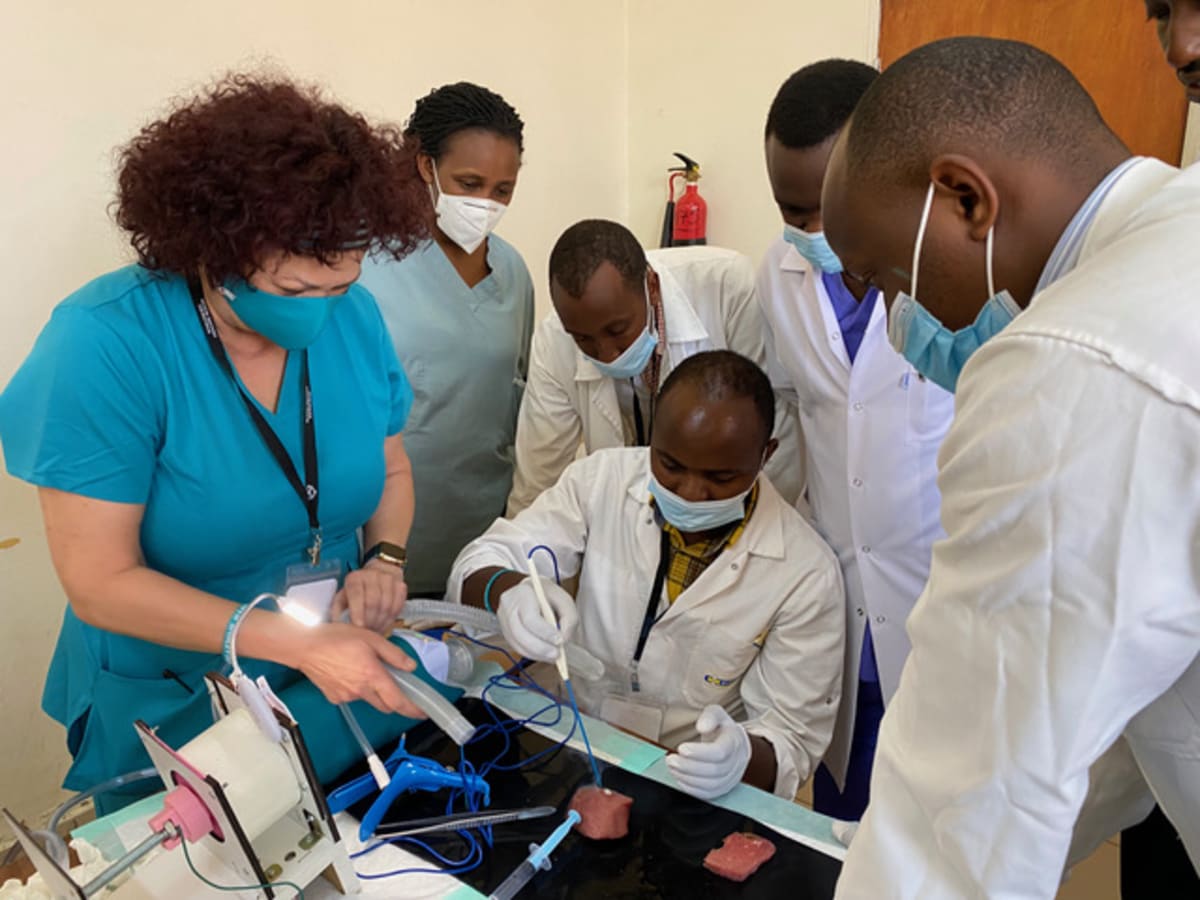
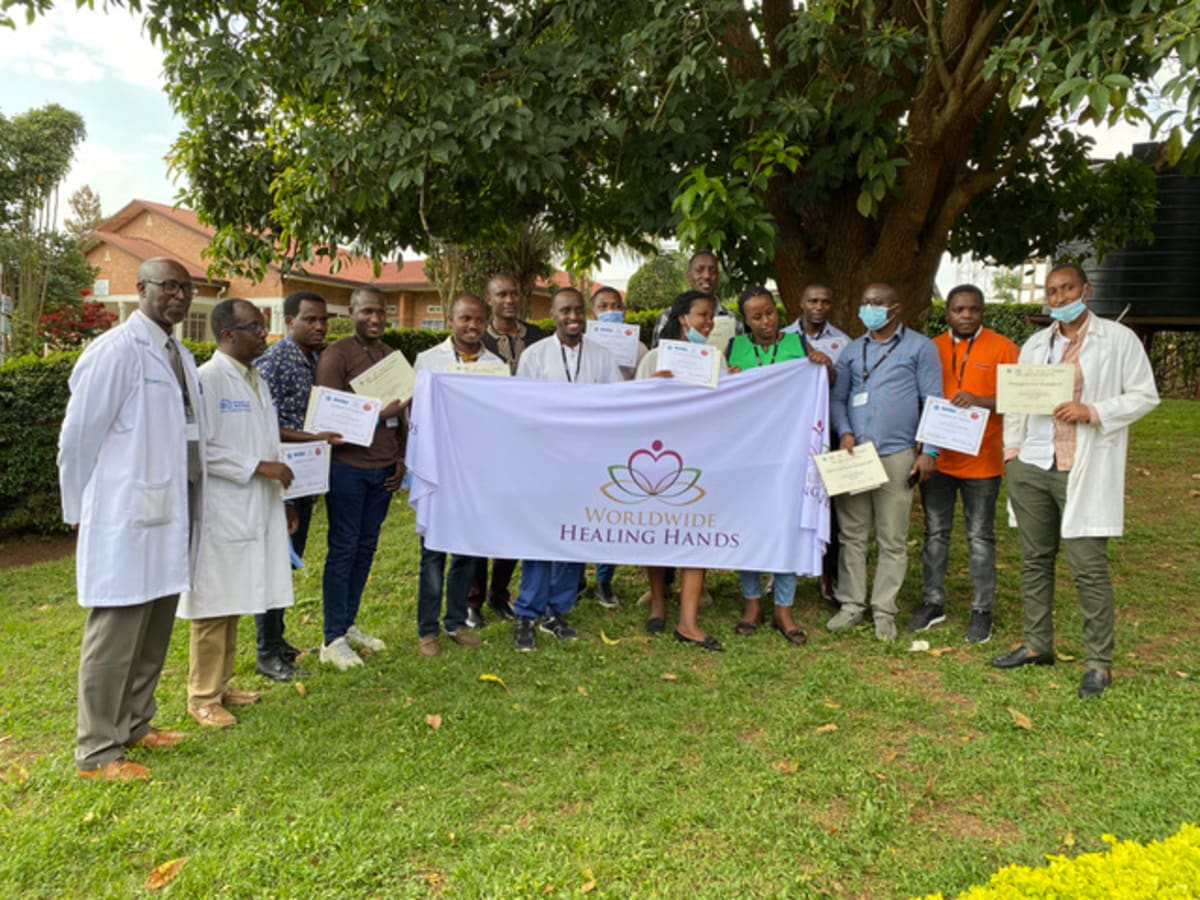


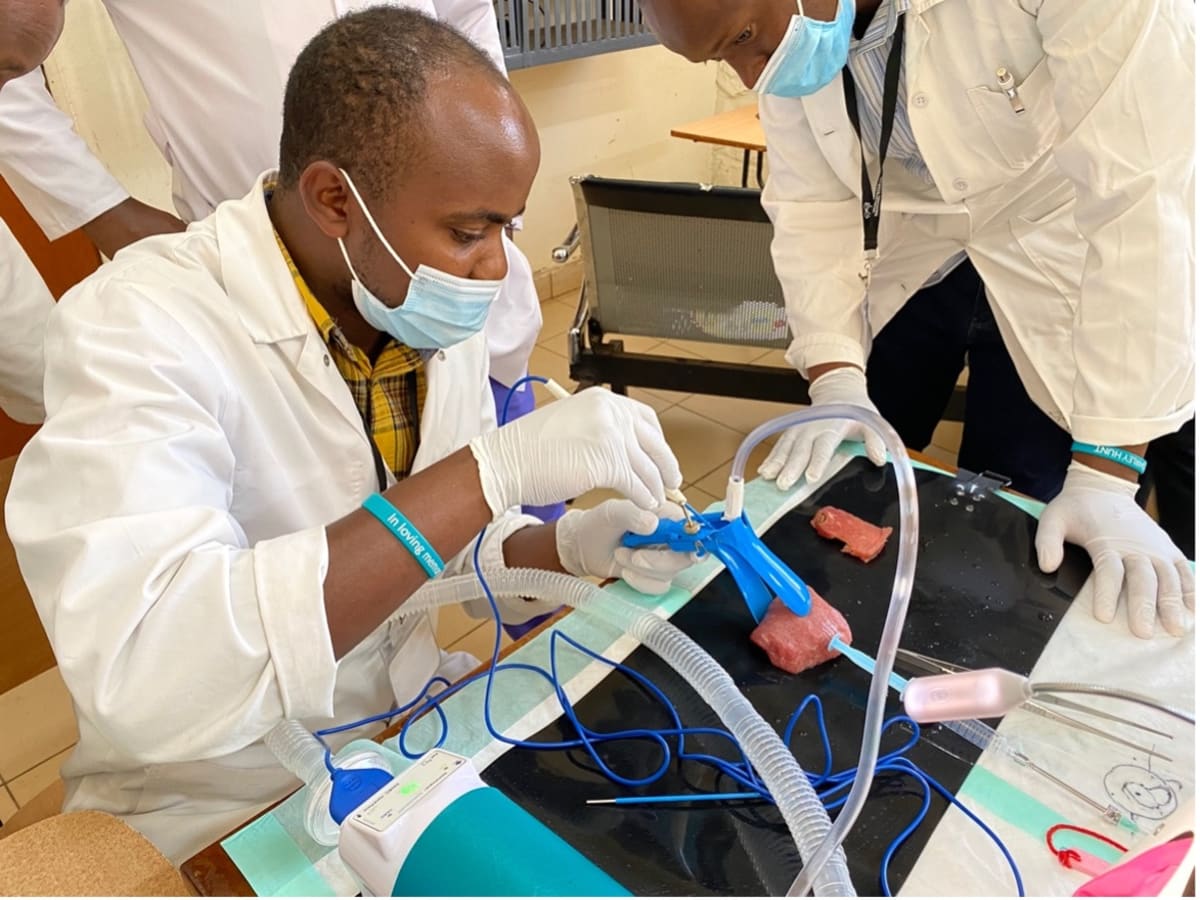
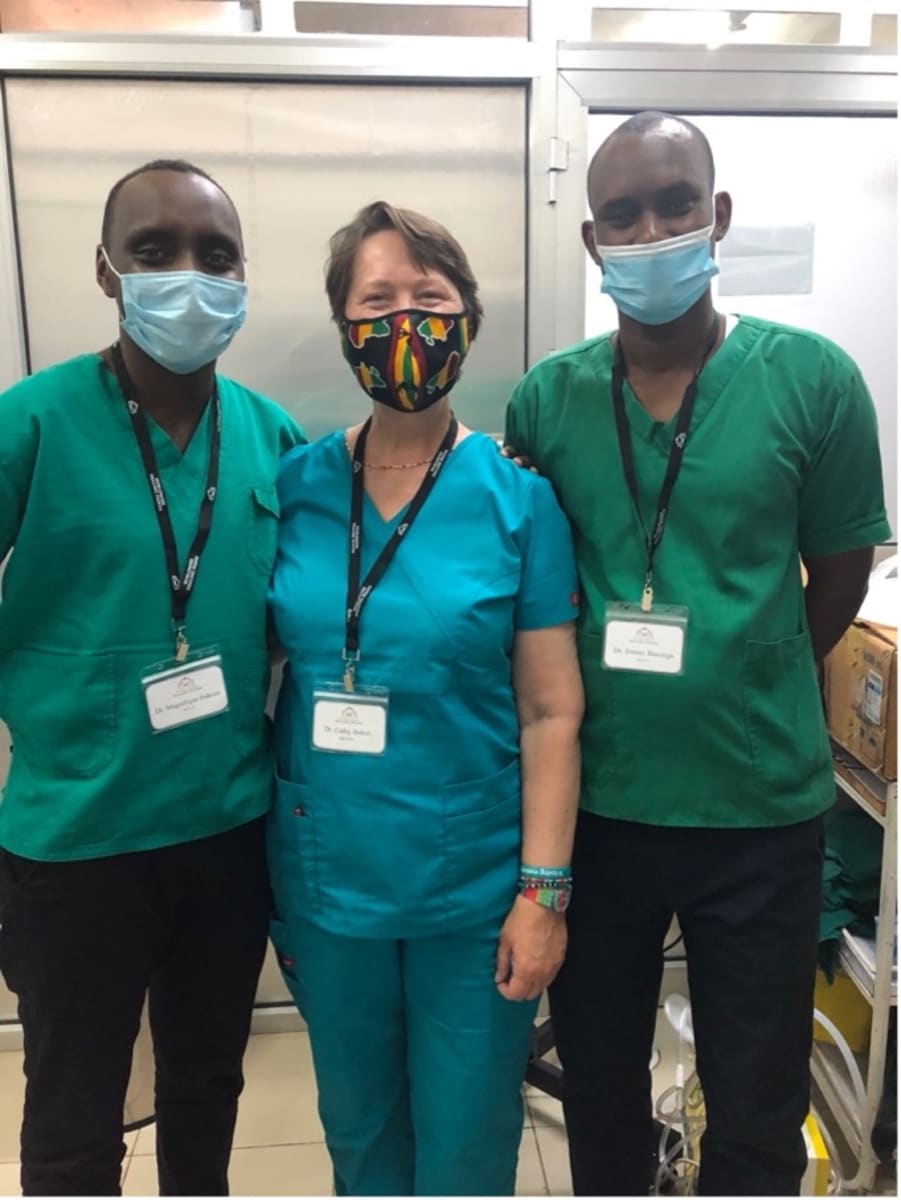
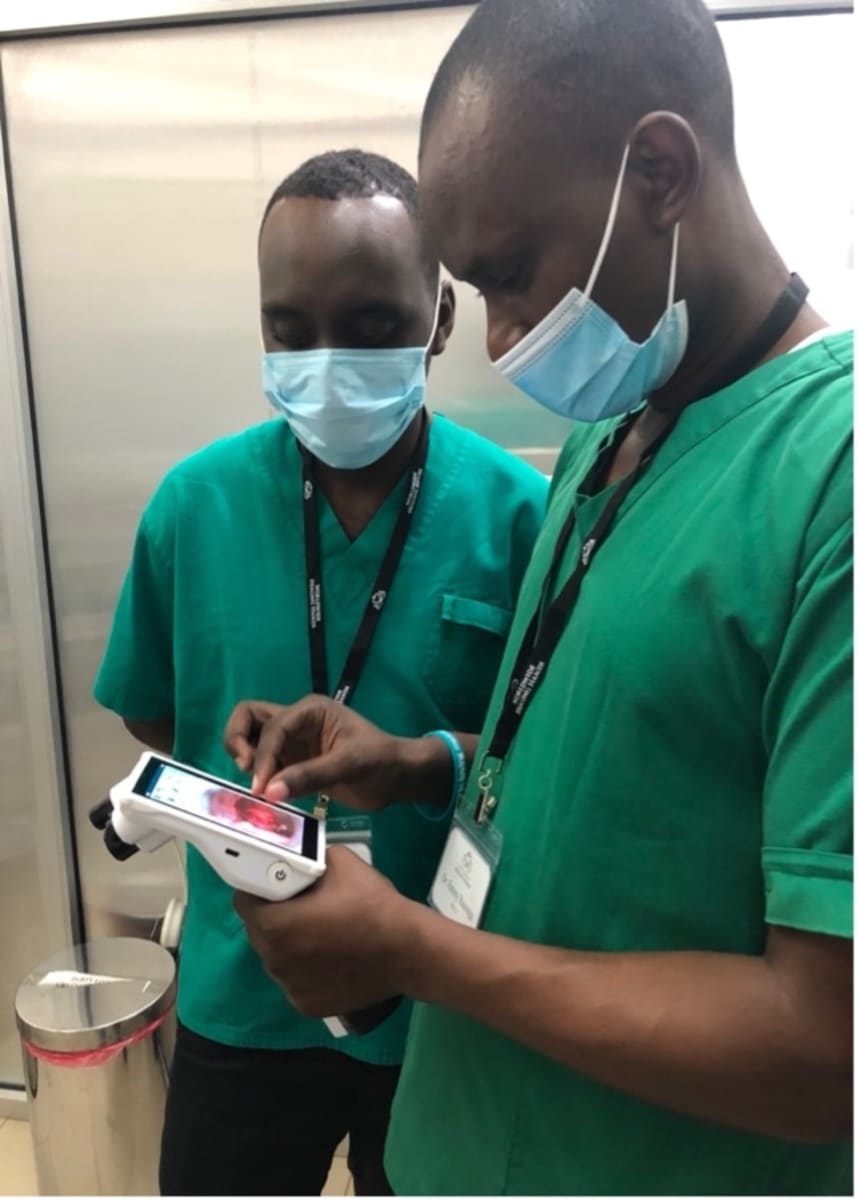

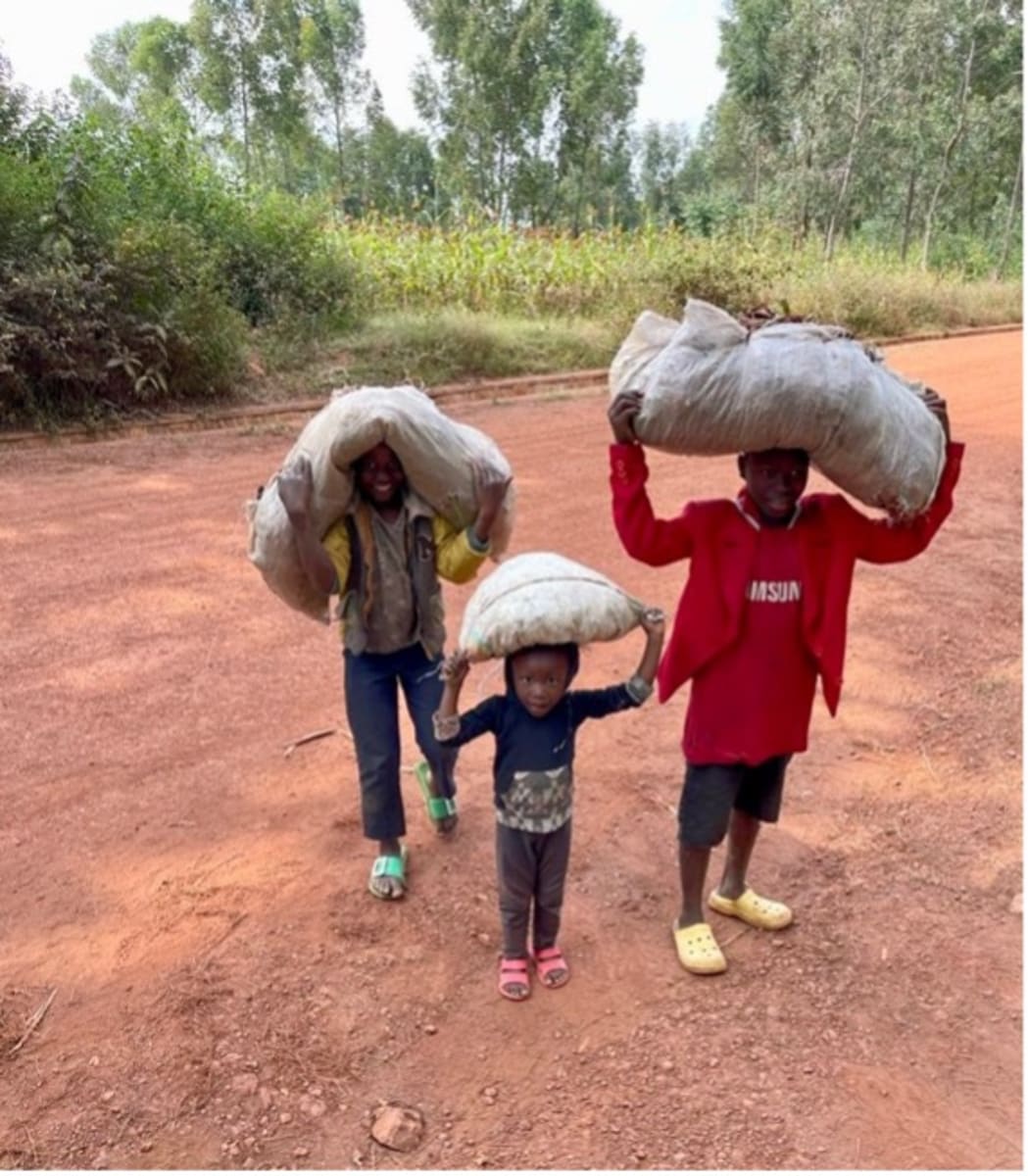


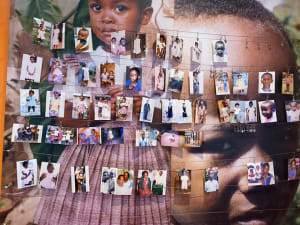
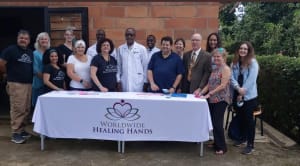





I want to thank the Dox Foundation for its support of my recent trip to Rwanda, where I spent two weeks volunteering with the Worldwide Healing Hands (WHH) organization, teaching cervical cancer screening and dysplasia treatment techniques at the University Teaching Hospital of Kigali.
This is the first time that I have worked with the WHH group. I decided to work with them after a recruiting email led me to their website and I liked the expressed goals on their website: “The life-saving ambitions of Worldwide Healing Hands are accomplished through medical missions that serve two critical purposes; they bring modern medical expertise and medicines to quash high maternal and infant mortality rates, and they train local physicians and midwives so that the expedition has a long-lasting positive effect in the area.” Although we were not specifically addressing obstetric problems during this trip, I found the group’s founder, Dr. Paula Dhanda, and the rest of the volunteers to be both ambitious and sincere in trying to achieve long-lasting sustainable effects in women’s health.
The weekend before we were scheduled to leave, we had a packing party. We brought our two large suitcases (in my case, purchased inexpensively from Goodwill) and then carefully packed them to the airline-allowed weight limit with the medical equipment that Dr. Dhanda had already collected to bring with us to Rwanda. When I signed up for this mission, I didn’t fully appreciate how much of our group’s purpose was to bring medical supplies along with us. (I didn’t deeply think about all the implications when I signed a volunteer agreement that states that you are expected to pack all your personal items into your carry-on bag. Your airline checked-luggage allotment is used to bring these heavy suitcases filled with medical equipment and supplies.).
The goal of our mission this June was to help cervical cancer prevention by teaching the screening and treatment of cervical dysplasia procedures to Obstetrics/Gynecology resident physicians at the University Teaching Hospital of Kigali. I am a retired Ob/Gyn physician who enjoys clinical teaching and I had previously worked with Seed Global Health organization while teaching at the University of Malawi. I loved living in Africa but had never been to Rwanda, so I was excited to have this opportunity. I thought that this WHH project was well-planned and needed - cervical dysplasia screening and treatment are often not addressed in sub-Saharan Africa due to other pressing priorities.
Our group was planning to train the residents in cervical dysplasia screening with colposcopy, thermoablation, and Large Loop Excision of the Transformation Zone (LLETZ - also known as LEEP). Dr. Dhanda had obtained some portable digital colposcopes and some prototypes of a portable rechargeable thermoablation instrument (which made thermoablation more convenient than an unwieldy cryoablation set up). She had also obtained sets of teaching colposcopy cervix models, as well as PPE, speculums, and other gynecology clinic necessities. Once we started unpacking the bags in Rwanda, the clinic nurses were delighted to claim the new stock of supplies for the gynecology clinic. The faculty and residents are now using these supplies, equipment, and the new teaching materials. We hope that all the material and equipment we brought will ultimately benefit the women of Rwanda with increased cervical dysplasia screening and treatment and thereby preventing future cervical cancer cases.
The day after we arrived and cleared quarantine (upon arrival, you are tested again for covid-19 and then confined to your hotel room until the results come back negative about 12 hours later), training sessions were set up at the University Simulation Center. During Monday and Tuesday of both of the workweeks, the WHH volunteers gave lectures and demonstrations, and the residents practiced in small groups with us during hands-on sessions. (The large resident class was divided so that about half of them could continue their work in the hospital while the rest attended our training course. The second week, they switched.) The residents and some of the faculty members enjoyed the opportunity to work with the new equipment and practice some of their new skills.
During the next three days, I was assigned to be an attending in the residents’ gynecology clinic at the University Teaching Hospital of Kigali. We saw patients with a variety of gynecologic problems - patients with cervical cancer who needed to be staged and treatment arranged, a few women seeking infertility treatment, women with menstrual problems, and a few women who presented for cervical cancer screening after hearing that a mzungu doctor was in clinic hoping to do just that. I was thrilled to be there and the residents seemed to enjoy having me in clinic with them. I was interested in discussing every case with the residents, and throughout the clinic day, we tried to examine and screen each patient so that the residents could further practice using their new-learned skills and equipment.
The WHH volunteers had hoped that while we were there, a large group of patients with suspected cervical dysplasia had been scheduled to be seen so that our new learners could become very proficient at these skills. The hoped-for crowd of patients with suspected cervical dysplasia did not materialize, but our team of residents still saw a few cases where the procedures were needed, and so they were able to demonstrated their new skills while we were attending at their busy gynecologic clinics. The chief resident, Dr. Magnifique Irakoze, was particularly interested bringing the new skills and training to other resident physicians, nurses, and clinical officers who might practice in outside community clinics. I am hopeful that when WHH is able to return to Rwanda, we will be able to build on this program. I hope to see the Ob/Gyn department faculty and residents teach what they have learned and practice beyond the central teaching hospital.
During our non-working hours, the WHH volunteers were happy to have this opportunity to explore Kigali in our off evenings and over the weekend. A covid curfew was strictly enforced and masks were mandatory everywhere, but there was still so much that we could see and do! Of course, we made a point to visit the sobering Kigali Genocide Memorial, commemorating the 1994 genocide. Due to covid, some tourist activity was limited, but while we were in Kigali, we ate well in several cosmopolitan restaurants, were able to shop at the local markets, and visit a few art galleries. (Since our visit, Rwanda has gone into another lockdown due to a new surge in covid-19 infections.) At the end of our time there, several of us took a side trip to the Volcanoes National Park and hiked to see the mountain gorilla families there. It was a trip that I recommend highly to anyone who is an animal lover or interested in what is happening in African wildlife conservation.
Thank you to the Dox Foundation for its support of my trip to Rwanda. I am very grateful for your help.
Cathy A. Baker, MD FACOG
catbak56@gmail.com